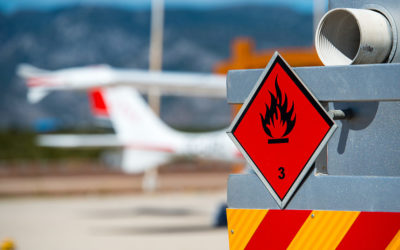New Lithium Battery Rules For Air Cargo

From 1st April 2022, new IATA regulations have once again been introduced for the movement of lithium batteries by air. The changes were buried in the multi-page packing instructions of the IATA Dangerous Goods Regulations – 63rd edition.
The result of these new regulations is any lithium batteries sent on their own require the completion of a shipper’s declaration for dangerous goods, additional marking and labelling and also full dangerous goods by air training.
Air freight regulations have been changing much more frequently than road, sea and rail, and seem to be reflective of the growth in the transport of these battery types. Many lithium powered electrical devices, such as mobile phones, tablets along with scientific and medical equipment, are more likely to travel by air freight.
IATA regulations for their movements were only amended in January, and there were calls then for more scrutiny following a number of fires and incidents on standing aircraft.
While Lithium batteries are considered safe to users, when installed in electronic devices such as mobile phones and power tools, they can actually be punctured and can ignite or even explode. When handled or stored together, this can can lead to fires, which is why they are considered dangerous goods.
Follow Us
Stay up to date with our news and articles on social media
Contact Us
Tel 01675 466521
Email
sales@dangerousgoodspacking.com
Dangerous Goods Logistics
Dangerous Goods Compliance
Related Articles
Dogs That Can Detect Lithium Batteries
The detection of lithium batteries using dogs is being pioneered in France, and is expected to roll out globally following a successful six-month trial.
Felixstowe & Liverpool Strike Update
Workers at the Port of Felixstowe are due to start an eight day strike starting from this weekend and now Liverpool dock workers have voted for industrial action too.
Dangerous Goods Regulation Changes In China
China introduced new legislations with regard to the importing and exporting of dangerous goods resulting in a crackdown on regulations and even more stringent checks.




